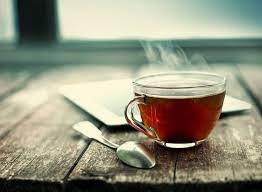Coffee Vs Tea: Which is better for your health?

What’s in the Cup?
Coffee and tea begin life in very different plants and undergo distinct processing. Coffee beans are the roasted seeds of Coffea plants, whereas tea is made from the leaves of Camellia sinensis (for green, black, oolong) or herbs/herbal blends when “tea” is used broadly.
Coffee contains caffeine, polyphenols including chlorogenic acids, small amounts of micronutrients, and various bioactive compounds, consuming 3 to 5 cups of coffee daily has been associated with a lower risk of several chronic diseases, likely due in part to its antioxidant content.
Tea, including green and black types, contains caffeine, though generally less than coffee, catechins especially in green tea, theaflavins in black tea, and other flavonoids and polyphenols. These compounds are often cited for their role in reducing oxidative stress and inflammation.
Because both beverages carry caffeine, their health effects also depend on dosage, too little may be ineffective, too much may bring side effects. The Mayo Clinic notes that up to 400 mg of caffeine per day is generally safe for most adults, naturally, that includes combined sources (coffee, tea, sodas).

Benefits of Coffee: The Energy Brew
One of the most compelling aspects of coffee is its ability to enhance alertness and mental performance. The caffeine in coffee blocks adenosine receptors, which helps reduce fatigue and boosts attention. Many people rely on coffee to jump-start the day or power through mid-afternoon drowsiness.
But the benefits go beyond a temporary lift, moderate coffee consumption is linked to lower risks of several chronic diseases. Harvard reports that coffee drinkers may see reduced risk of type 2 diabetes, Parkinson’s disease, liver diseases, and even certain cancers.
In one large meta-analysis, moderate intake about three cups per day was associated with a 15% lower risk of cardiovascular disease compared to minimal coffee consumption.
More recently, observational data suggest coffee drinkers have lower rates of cardiovascular disease and premature death.
Coffee may also support mood. In large-scale studies, people consuming 4 or more cups daily showed lower rates of depression compared to nondrinkers.
Still, coffee is not without downsides. High doses of caffeine can cause anxiety, restlessness, increased heart rate, insomnia, and digestive complaints, Coffee brewed without a filter like French press can raise cholesterol levels slightly because of compounds called diterpenes. For sensitive individuals, even moderate consumption can trigger heartburn or jitteriness.

Benefits of Tea: The Gentle Powerhouse
Tea is often seen as the milder, gentler cousin to coffee, but its subtler effects come with strong credentials. Tea drinkers benefit from a steadier, lower-dose caffeine boost, which is less likely to provoke jitteriness or insomnia in many individuals.
Green tea, rich in catechins like epigallocatechin gallate (EGCG), has earned considerable scientific attention. Some studies suggest it may help with weight management, improve lipid profiles, and support heart and brain health, Green tea’s antioxidants may also contribute to reduced inflammation and slower cellular aging.
Black tea is not far behind. It carries theaflavins formed during oxidation and flavonoids that support vascular function, may modestly lower blood pressure, and help maintain cognitive function, Some data link regular black tea consumption with reduced stroke risk.
Tea is also associated with lower risks of several chronic diseases. According to WebMD, tea consumption especially green and black, correlates with reduced risks of heart disease, stroke, and cognitive issues, though the evidence is still evolving.
On the risk side, excessive consumption of certain teas especially with supplements high in EGCG has been linked to liver toxicity in rare cases, Black tea may reduce iron absorption from plant foods if consumed too close to meals, and heavy tea drinkers may experience effects like caffeine overstimulation, When you look at coffee versus tea across key dimensions, neither emerges as a universal winner. It’s more about matching the beverage to your goals and tolerances.
Caffeine and stimulation
Coffee typically contains much more caffeine than tea. An 8-ounce cup of black coffee may deliver around 96 mg of caffeine, while black tea gives about 47 mg and green tea around 28 mg, If you’re sensitive to caffeine, tea offers a gentler boost with fewer side effects.
Antioxidant potential
Both drinks are rich in antioxidants, though of different types. Coffee’s chlorogenic acids and polyphenols help counter oxidative stress, Tea’s catechins and flavonoids provide complementary antioxidant support.
Chronic disease associations
Studies suggest both drinks may reduce risks of heart disease, stroke, type 2 diabetes, and certain neurodegenerative diseases. Coffee tends to show a strong association in large cohorts, while tea benefits are promising but often weaker or less consistent.
Tolerance and side effects
Coffee’s stronger stimulus means potential side effects are more pronounced in susceptible individuals. Frequent excessive intake may lead to anxiety, sleep disruption, digestive upset, or elevated cholesterol (with boiled or unfiltered coffee, Tea is usually gentler, though high consumption or supplements carry rare risks like liver effects in green tea extract.
Flexibility in blends and rituals
Tea has the advantage of vast variety: green, black, white, oolong, herbal, blends. You can tailor taste, caffeine level, and health goals. Coffee is more limited in variety but offers many brewing styles (espresso, filtered, Turkish, etc.) that influence strength and health impact.
How to Choose Wisely or Embrace Both
The best choice depends on your personal health status, lifestyle, and preferences.
First, listen to your body. If coffee causes jitters or sleep issues, tea may suit you better. If tea feels too weak and you need more mental energy, moderate coffee may be the answer.
Moderation is key. For coffee, many authorities suggest 2 to 5 cups per day as a sweet spot, about 400 mg of caffeine in all, to maximize benefit and minimize harm.
For tea, sticking to a few cups daily is a safe and beneficial approach,Consider timing. Avoid caffeinated beverages late in the day to prevent sleep disruption. For coffee drinkers, limiting consumption past midafternoon may help preserve sleep quality.
Mind how you brew and what you add. Using paper filters can reduce lipid compounds in coffee. Minimizing sugar, cream, or flavored syrups ensures that your beverage remains healthful. In tea, avoid oversteeping which can intensify bitterness and possibly extract more tannins.
Alternate or combine. Some studies suggest combining tea, coffee, and water may be associated with greater longevity than consuming either alone, You might drink coffee in the morning for alertness, then switch to tea in the afternoon for calm focus.
Tailor to health conditions. For pregnant women, many guidelines recommend limiting caffeine to around 200 mg/day. People sensitive to acid or with reflux may prefer low-acid coffee or milder teas. Those with iron-deficiency risk should drink tea between meals, not with iron-rich meals.
Final Thoughts
Tea and coffee both bring value, each carries unique strengths and trade-offs. Coffee delivers a robust, efficient dose of stimulation and a wealth of epidemiological associations with reduced disease risks. Tea offers gentler effects, vast variety, and its own repertoire of antioxidant benefits.
In the end, “better” depends on your body, your goals, and your habits. If you thrive on a sharp jolt in the morning, coffee may be your ally. If you prefer a soothing companion for your day, tea might win. Many people find balance by enjoying both on different occasions.
It is Important to know how your body responds, and enjoy the ritual, Whether it’s a bold espresso shot or a steaming cup of jasmine green tea.
You may also like...
Super Eagles Fury! Coach Eric Chelle Slammed Over Shocking $130K Salary Demand!
)
Super Eagles head coach Eric Chelle's demands for a $130,000 monthly salary and extensive benefits have ignited a major ...
Premier League Immortal! James Milner Shatters Appearance Record, Klopp Hails Legend!

Football icon James Milner has surpassed Gareth Barry's Premier League appearance record, making his 654th outing at age...
Starfleet Shockwave: Fans Missed Key Detail in 'Deep Space Nine' Icon's 'Starfleet Academy' Return!

Starfleet Academy's latest episode features the long-awaited return of Jake Sisko, honoring his legendary father, Captai...
Rhaenyra's Destiny: 'House of the Dragon' Hints at Shocking Game of Thrones Finale Twist!

The 'House of the Dragon' Season 3 teaser hints at a dark path for Rhaenyra, suggesting she may descend into madness. He...
Amidah Lateef Unveils Shocking Truth About Nigerian University Hostel Crisis!

Many university students are forced to live off-campus due to limited hostel spaces, facing daily commutes, financial bu...
African Development Soars: Eswatini Hails Ethiopia's Ambitious Mega Projects

The Kingdom of Eswatini has lauded Ethiopia's significant strides in large-scale development projects, particularly high...
West African Tensions Mount: Ghana Drags Togo to Arbitration Over Maritime Borders

Ghana has initiated international arbitration under UNCLOS to settle its long-standing maritime boundary dispute with To...
Indian AI Arena Ignites: Sarvam Unleashes Indus AI Chat App in Fierce Market Battle

Sarvam, an Indian AI startup, has launched its Indus chat app, powered by its 105-billion-parameter large language model...

:max_bytes(150000):strip_icc()/health-black-vs-green-tea-1-f0c5701a6dc84b478a67f3984bfbec63.jpg)
:max_bytes(150000):strip_icc()/health-oange-juice-vs-coffee-e9790c5048c64f31bbe7bde0f61988c0.jpg)
:max_bytes(150000):strip_icc()/Health-GettyImages-2227107996-ea68ba3036d747d79ad338826a497f9b.jpg)

:max_bytes(150000):strip_icc()/health-green-beans-asparagus-61b351aa9d34446c9939054de29dfb5c.jpg)
:max_bytes(150000):strip_icc()/lemon-benefits-11857153-6c5930f73c8441b3834e5606bbd64f11.jpg)